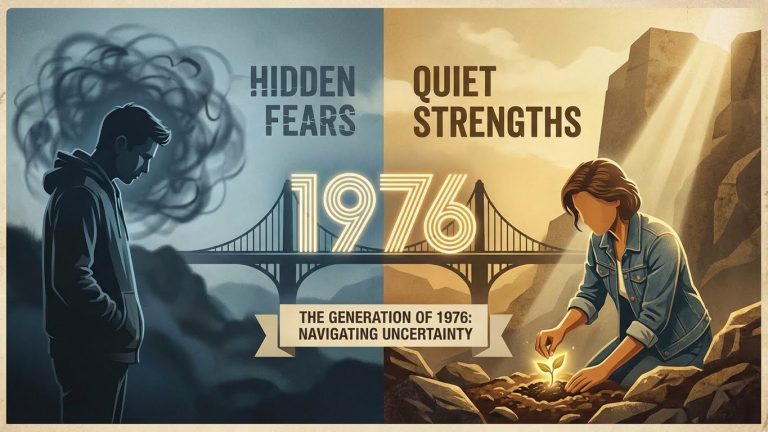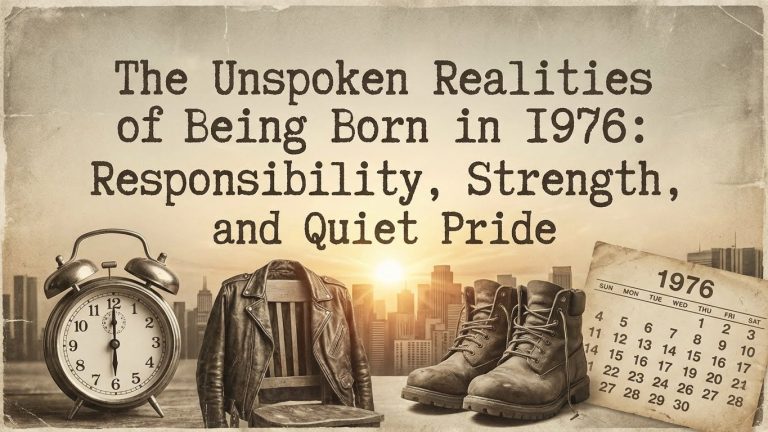Let’s cut through the noise.
It’s not bad communication.
Not different love languages.
Not even cheating.
Yes, those are symptoms — serious ones.
But they often grow from a much deeper, invisible seed.
One that almost no one talks about:
The fear of not being enough.
Not smart enough.
Not attractive enough.
Not lovable enough.
Not strong, stable, interesting, desirable, worthy… enough.
This fear silently infiltrates even the healthiest relationships. It hides behind arguments over dishes, distant behavior, and late replies. It’s the quiet voice that whispers, “They’ll leave if they see the real me.”
So let’s dig deep. Because until we face this fear, most of our relationship struggles will keep looping — no matter how many communication workshops we take.
Where This Fear Comes From
We’re not born with it.
As children, we don’t look in the mirror thinking, “I’m not lovable.” We just are.
But somewhere along the way — through criticism, rejection, comparisons, trauma, abandonment — we start questioning our worth.
Maybe it was:
- A parent who withheld affection when you made a mistake.
- A partner who cheated and said, “It’s because you were too needy.”
- A culture that told you your body had to look a certain way to deserve love.
Bit by bit, the belief forms:
“I’m not enough as I am. I have to earn love.”
So we carry that into adult relationships, often unconsciously. And it shows up in ways we don’t expect.
How This Fear Sabotages Relationships
Here’s how the “not enough” fear drives common relationship problems — without us even realizing:
1. Over-Attachment or Clinginess
When you don’t feel secure in yourself, you may seek constant reassurance from your partner:
- “Do you still love me?”
- “Why didn’t you text back right away?”
- “Are you sure you’re not mad at me?”
This comes from the fear that if you don’t stay hyper-vigilant, you’ll be abandoned.
Ironically, this often pushes partners away, feeding the very fear you’re trying to avoid.
2. Withdrawal and Avoidance
On the flip side, some people deal with this fear by withdrawing emotionally.
They fear that if they reveal their true needs or vulnerabilities, they’ll be judged or rejected.
So they:
- Keep conversations surface-level.
- Avoid conflict at all costs.
- Seem “cold” or distant.
This creates a lack of intimacy that frustrates their partners — again, reinforcing the cycle.
3. Jealousy and Comparison
If you secretly believe you’re not “good enough,” anyone who threatens your spot can trigger insecurity.
- Their coworker is funny — so now you feel threatened.
- They follow attractive people on Instagram — now you’re spiraling.
- They talk about their ex — now you’re questioning everything.
You’re not actually mad about the person.
You’re terrified that you won’t measure up.
4. Sabotaging Healthy Love
One of the most tragic outcomes: when someone finally loves us genuinely, we don’t believe them.
We question:
- “What do they really want?”
- “This feels too easy — it must be fake.”
- “They’ll leave once they realize who I really am.”
So we:
- Pick fights.
- Pull away.
- Test them.
Why? Because it feels safer to be rejected early than to hope and be hurt later.
The Hidden Cycle: Fear → Behavior → Self-Fulfilling Prophecy
Here’s the dark loop most people get stuck in:
- You secretly fear you’re not enough.
- That fear drives anxious or avoidant behaviors.
- Those behaviors cause conflict or distance in the relationship.
- The relationship suffers — or ends.
- You say, “See? I knew I wasn’t lovable.”
- The belief gets reinforced. And it starts again.
Unless you break this cycle at the root — the fear itself — nothing truly changes.
Facing the Fear Directly: Healing Starts Inside
So, how do you begin healing this?
Not with relationship hacks or date night tips — but with inner work.
Here’s a roadmap to begin:
1. Name the Fear Clearly
Start by being radically honest with yourself.
Ask:
- “What am I really afraid will happen if I show my true self?”
- “What would it mean about me if they left?”
- “Where did I first learn I wasn’t enough?”
Write it down. Don’t sugarcoat it. Bring it into the light.
Because what we name, we can tame.
2. Separate Old Wounds from Present Reality
Many of us react to our partners as if they are our parents or past abusers — without realizing it.
Example:
- Your partner says, “I need space.”
- You hear, “You’re too much. I’m leaving.”
But maybe they just had a hard day.
Ask:
- “Am I reacting to them — or to something old in me?”
Learning to pause here can save your relationship from unnecessary damage.
3. Learn to Self-Soothe
Your partner is not responsible for fixing your self-worth. That’s your job.
Practice:
- Breathwork or meditation when triggered.
- Writing compassionate letters to your inner child.
- Affirmations that feel believable:
“I am worthy of love, even when I feel scared.”
You don’t have to feel 100% confident. But you do need to learn how to support yourself emotionally.
4. Communicate from Vulnerability, Not Fear
Instead of:
“Why didn’t you text back? Are you ignoring me?”
Try:
“When I didn’t hear from you, I noticed I started spiraling. I realize that’s my insecurity, not your fault — but I wanted to share it honestly.”
This shifts the tone from blame to connection. From fear to truth.
And healthy partners respond to truth far better than accusation.
If You’re the Partner of Someone With This Fear
What if they are the ones acting from insecurity?
Here’s what helps:
- Be patient, but have boundaries.
You can support them, but you’re not their therapist. - Validate without feeding the fear.
Don’t say, “Yes, I’ll never leave you ever.” Say, “I love you and I’m here — but I also need you to trust me.” - Encourage growth.
Invite them into conversations about healing. Suggest books, therapy, or journaling.
Ultimately: Don’t abandon yourself to keep them calm.
Support them in facing the fear — not feeding it.
Why This Fear Is So Universal (and So Hidden)
Here’s the deeper truth:
Almost everyone carries some version of “I’m not enough.”
Especially in love.
Why?
Because relationships are mirrors. They reflect not just our beauty, but also our wounds.
They activate the parts of us that were never loved, never seen, never accepted.
And suddenly, we’re 8 years old again — trying to earn someone’s approval.
But here’s the magic: relationships can also heal those parts.
If we’re willing to see them, feel them, and stop hiding.
Final Truth: You Are Enough — But You Have to Believe It Before Anyone Else Can
Here’s what no one tells you:
No relationship can ever make you feel “enough” if you don’t believe it already.
Even the most loving partner can’t fill a black hole of self-doubt.
But when you begin to accept yourself — flaws and all — you create space for love that’s rooted in truth.
Not performance. Not fear. Not control.
But real love.
And that’s what we’re all craving, beneath the fights, the games, the silence, and the desperate texts.
Not a perfect partner.
Just the feeling: “I am seen. I am safe. I am enough.”
You can’t find that outside first.
You find it within.
And when you do, everything changes — including your relationship.











